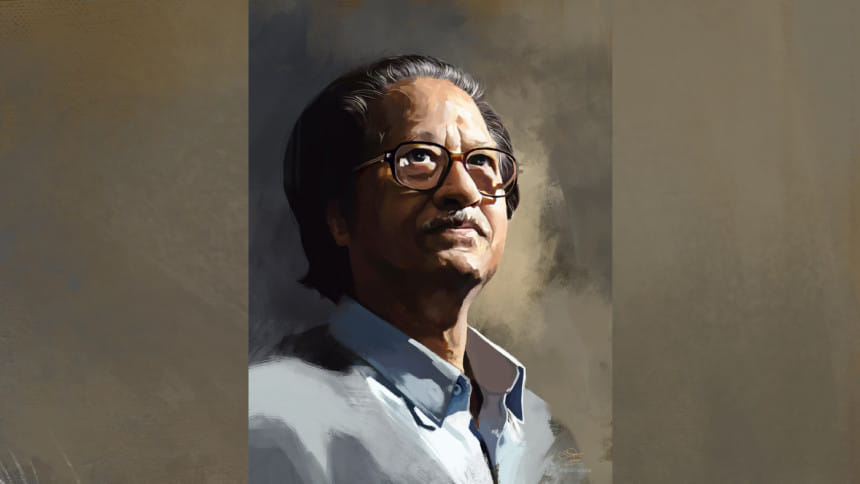Mustafa Monwar

Mustafa Monwar, popularly known as the "puppet man of Bangladesh", is a trailblazer in championing the freedom of creative expression.
Born in 1935, Monwar has made a significant impact on the world of fine arts. With a diverse skill set as a puppeteer, artist, director, television programme producer, and screenwriter, he has established himself as a unique and unparalleled figure in the field of creative arts.
His belief in art as an instrument of protest against injustice was evident from his early age.
In 1952, while he was a ninth grader at Narayanganj High School, he was briefly incarcerated for creating cartoons in support of the language movement.
During the 1971 Liberation War, he made a valuable contribution as a puppeteer. By organising puppet shows, he utilised his skills to boost the morale of the people in refugee camps in West Bengal. His most famous puppet plays, including "Agachha," "Rakkhash," and "A Brave Farmer" conveyed powerful messages and deeply moved audiences.
After serving as a lecturer for a while, in 1964 Mustafa Monwar became the programme producer of the newly established Pakistan Television.
He then played a crucial role since the inception of BTVH, with its most popular programmes being focused on children. He was instrumental in initiating BTV's national competition "Notun Kuri" in 1976.
Mustafa Monwar has made enormous efforts in preserving folk stories and reviving notable children's tales through puppetry. He is the creative force behind the timeless puppet characters -- Parul, Bagha, and Mini, which have brought joy to children for generations.
Some of his adapted screenplays for BTV, including "Raktakarabi" and "Mukhora Romoni Boshikoron", have received wide recognition and have been nominated for inclusion in the "World History of TV Drama" by Granada TV in the UK.
The Daily Star pays tribute to Mustafa Monwar and his enduring legacy, which exemplifies the transformative power of creativity to promote a freer and more democratic world.

 For all latest news, follow The Daily Star's Google News channel.
For all latest news, follow The Daily Star's Google News channel. 



Comments